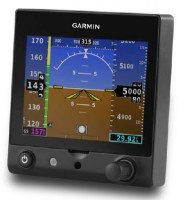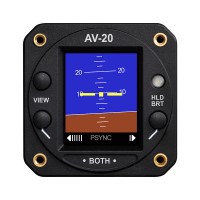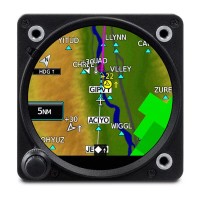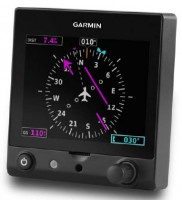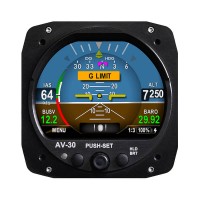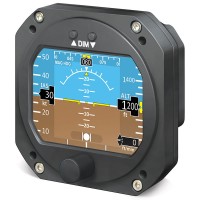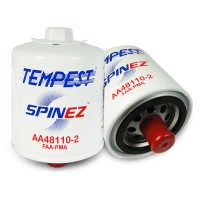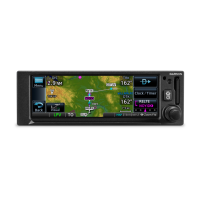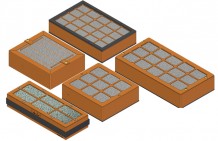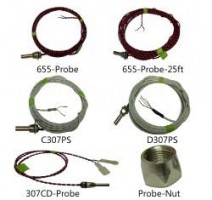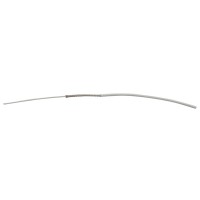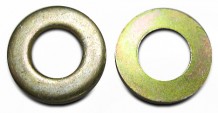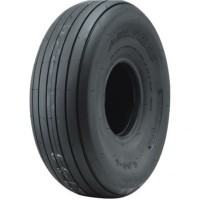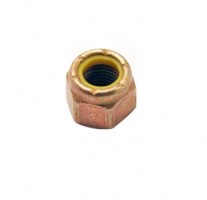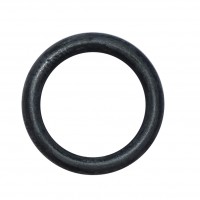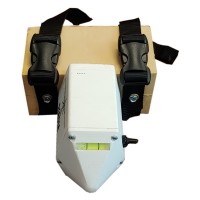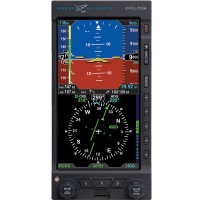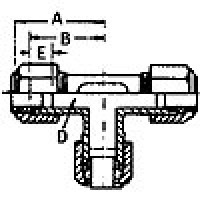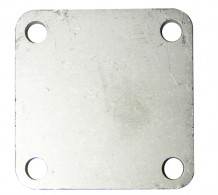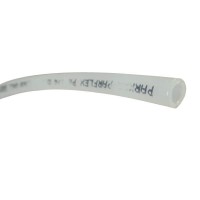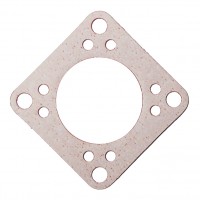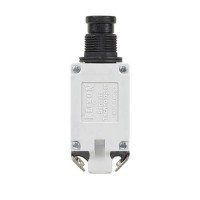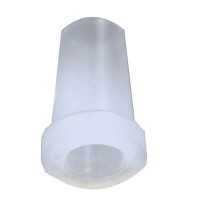Q&A
Please note, Aircraft Spruce's personnel are not certified aircraft mechanics and can only provide general support and ideas, which should not be relied upon or implemented in lieu of consulting an A&P or other qualified technician. Aircraft Spruce assumes no responsibility or liability for any issue or problem which may arise from any repair, modification or other work done from this knowledge base. Any product eligibility information provided here is based on general application guides and we recommend always referring to your specific aircraft parts manual, the parts manufacturer or consulting with a qualified mechanic.
Q: Can this Uavionix AV30 be used as a backup AI in a certified aircraft?
This largely depends on on the STC of what is being backed up. Contact uAvionix for details.
Q: Is the Uavionix AV-30 unit authorized for certified aircraft?
Yes, the Uavionix AV-30, part # 11-17556, is an FAA Approved unit. It can be installed in certified aircraft.
Q: Will the certified AV-30 be able to drive my STEC-30 with the installed gps?
Per the manufacturer, there is no function to drive autopilots at this moment. However, they are working on something that will adapt to legacy STEC autopilots.
Q: Can this use the GPS from my uavionics skybeacon?
Per the installation manual Revision A on page 7, it states that the optional GPS interface is Moving Map / Aviation Protocol output provided by most panel mounted GPS units. This cannot use the Skybeacon GPS signal.
Q: Can the Uavionix AV-30 be interfaced with legacy king kx155 nav/comm?
Per the installation manual Rev. A, it will not connect to a NAV/COM.
Q: Will there be an analog converter for the Uavionix AV-30 so I can use this as the attitude reference for my century IV auto pilot?
Yes. The manufacturer is creating a solution to allow this unit to connect to an autopilot. However, at this time, we are not aware of what autopilots will be available to function with the unit.
Q: My classic Cessna reads in mph, can I change IAS from kts to mph on the Uavionix AV30?
Yes, indicated AirSpeed could either be KTS or MPH on this unit.
Q: you say it has been certified, but uavionix site says not yet...
In the overview we show that certification is pending. This SKU will be the certified unit, so we are selling it as certified. We will not receive or ship any units until they are FAA Approved and we receive the certified units from Uavionix.
Q: Regarding the UAVIONIX AV-30 PRIMARY FLIGHT DISPLAY - CERTIFIED: Will we need 2 units (1 for AI and 1 for DG) in a certified aircraft if we would like to remove our vacuum pump? Can it serve as primary for both all within one unit?
Per the manufacturer, upon approval you will need 2 units for AI and DG. If the installation leaves no instruments that require the vacuum source, it can be removed. However, the removal of the vacuum source is not included in the AV-30 STC.
Q: Does the HSI on the Uavionix AV-30 provide vertical (glideslope) guidance?
Per Manufacturer there is no vertical guidance at all. There is only the horizontal steering indicator when in DG Mode.
Q: What is the difference between the certified and experimental - a piece of paper? Can I buy the experimental now and pay for the piece of paper later?
Yes, the functionality is generally the same, however, the experimental version cannot be certified after the fact. The certified version is manufactured under different conditions qualifying it for approval.
Q: Does the DG have a heading bug on the Uavionix AV-30?
Per the Manufacturer installation manual(Rev A page 5): Yes, the DG does have a heading bus.
Q: Can the AV-30C replace the standby instruments (Airspeed, Attitude, Altimeter) in a glass cockpit airplane?
This will be approved for primary attitude, with secondary airspeed and altitude. It will not replace your Altimeter or Airspeed Indicator.
Q: Where can I purchase the OAT probe for the AV-30?
Per the installation manual, you can use the C307PS, part # 11-04603.
Q: As I see on your website certification is pending. So part is certified already, right?
This part # 11-17556 is the certified version. It is currently in the approval process but Uavionix is expecting certification soon. Orders for 11-17556 will receive the certified version once available.
Q: Wondering if my old Garmin gnc 250xls GPS will output to the AV-30. It is currently connected to the CDI which I would like to remove and replace with the AV-30 at some point in the near future. Thanks in advance for your answer.
Per the installation manual Rev. A The optional GPS interface is an RS-232 serial input that is compatible with the industry standard Moving Map / Aviation Protocol output provided by most panel mounted GPS units and various aviation handhelds.
Q: Does the attitude indicator part of the AV30 require pitot and static?
Per the Installation manual Rev A page 6 2.3.2: If indicated airspeed and altitude are not desired (or available) for display, and potential performance degradation is acceptable, the pitot and static lines may be left disconnected. This may be applicable in certain installations, or when installation as a dedicated DG is being performed.
Q: What is the AV-30’s Airspeed Limit?
300 kts, or mps
Q: How does the AV-30 Calculate and display AoA information?
It is proprietary but it uses Pitot, Static, IMUs and is a calculated AoA.
Q: Is the AV-30 display dimmable?
The display auto-dims, or you can do it manually by pressing and holding the right button. Brightness can also be adjusted manually or set up to auto-adjust.
Q: What are the external requirements for installation of all AV-30 features?
OAT Probe, Auto Pilot Adapter (Future feature), GPS feed from a panel, or Portable GPS for GPS Navigator Overlay
Q: What class aircraft is the AV-30 certified for?
The AV-30-C is certified for Class 1, and Class 2 aircraft under 6000lbs.
Q: Is the AV-30 a certified primary AI or DG?
Yes.
Q: Is the AV-30 a VFR/IFR DG or AI instrument replacement?
Yes.
Q: Is the AV-30 an Autopilot, IFR GPS, ILS, or a glass panel EFIS replacement?
No.
Q: Is the AV-30 a replacement for the AI or DG with additional situation awareness, functionality, and allows for a steam AI or DG spot to become a multifunction tool?
Yes.
Q: Is AV-30 an ILS, Glideslope, or Flight Director?
No.
Q: Is AV-30 designed to replace a G1000, Aspen, or Avidyne 540, or G3X system?
No.
Q: Is AV-30 an IFR EFIS alternative to a 430W, GTN 650, or full IFR glass panel?
No it is not. The AV-30-C is certified as an AI, and/or a DG replacement. Future versions will have HSI, and AP integration.
Q: Is there any feature/functionality differences between the experimental, and certified versions of the AV-30?
No, only the certification.
Q: Will the AV-30, for certified aircraft be TSOed or will they be PMAed? If PMAed, will they have Cessna 170b eligibilty?
According to the uAvionix website: The AV-30-C is undergoing certification via the AMOC AML-STC process. This is a new risk-based certification methodology that is being supported for Part 23 Class I and Class II Aircraft. We expect to complete this certification around the beginning of Q2 2020.
They currently are collecting inputs on which aircraft to include in the initial AML.
Q: Does the AV-30 work with Stratus as GPS input?
No, the AV-30 will not work with the Stratus as a GPS input.
Q: If the AV-30 is installed to replace an existing DG will it still display AoA?
Per the installation manual, it cannot.
Q: Can the UAVIONIX AV-30 take directional information from a garmin 296 ? I have checked and the Garmin 296 has serial out put data but I do not know if that data is compatible with the AV-30 so that the DI function can work. Many thanks
Per Uavionix Support, the serial data is compatible with the Garmin 296.
Q: Is the AV-30-C compatible with a S-TEC 60-1 autopilot?
It does not have Autopilot compatibility at this time but the manufacturer is currently working on incorporating this in the near future.
Q: Will the AV-30 DG/HSI communicate with a Garmin GNX-375 GPS
Per manufacturer, yes, the AV-30 will receive information from the GNX375.
Q: Which aircraft are on the AML?
The current AV-30-C AML applies to Part 23 single-engine aircraft operating under 200kts. You can access both the current version of the AML under "Documents" on this page.
Q: What are my options if my aircraft is not listed on the AML?
The current AV-30-C AML applies to Part 23 single-engine aircraft operating under 200kts. uAvionix has tried to include as many of the applicable aircraft as possible. If your aircraft is not listed on the AML but does fall within the AML limitations, you may be able to obtain a field approval from your local Flight Standards District Office (FSDO).
Q: What is required for an AV-30-C installation?
The AV-30-C holds an STC-PMA with AML. The installation must be performed by a licensed aircraft technician and a 337 must be submitted as part of the installation. The AV-30-C ships with the AV-30-C, DB-15 connector, DB crimps, and a backshell for the DB connector. The DB-15 connector needs to be populated with pins based on the functions desired for the specific installation. If the aircraft is IFR certified, the pitot/static system will need tested and certified after the AV-30-C is added to the system.
Q: Will the initial STC have autopilot compatibility?
No, the initial STC does not have autopilot capability.
Autopilot integration will be accomplished in a phased approach. The initial autopilot support will be for STEC systems (which have their own roll/pitch source) and allow the heading bug on the AV-30 to drive the heading datum input on the autopilot. This interface will be accomplished with the APA-MINI converter. Follow on autopilot integration will occur over time, with most likely the Century systems first. These interfaces provide roll and pitch, in addition to the heading datum, to the autopilot. This interface is accomplished with the APA-10 converter. The APA-10 converter also provides ARINC 429 interface capability, which allows full vertical and lateral deviations from a digital navigational radio to be displayed. The AV-30 display component is provisioned for these interfaces, but will require a software update with the applicable autopilot adapter becomes available.
Q: Can the AV-30 replace my mechanical AI / Direction Indicator / Turn Coordinator?
The AV-30-C is approved as a stand-alone attitude indicator, directional gyro (dual unit installation), slip-skid indicator, and as the required backup in an EFIS installation.
If the installation configuration leaves no instruments that require a vacuum source, the vacuum pump system may be removed from the aircraft via a 337 field alteration process. The procedure for removal of the vacuum system is aircraft specific and beyond the scope of the AV-30-C Installation and STC approval.
Q: What level of GPS integration is supported?
The AV-30 provides an RS-232 receive line for “aviation” or “moving map” output provided by virtually every panel mount GPS navigator in service. This data is broadcast by the GPS navigator and no data is sent from the AV-30 back to the GPS unit. NMEA is also supported, which is output by most hand-held GPS units. NMEA protocol supports baud rate speed of 4800 and 9600, while “Aviation/moving map” protocol is fixed at a 9600 baud rate.
When connected to an external GPS navigator or hand-held, AV-30 operates as a repeater display. The data provided includes current waypoint ID, distance to destination, ground speed, cross-track error, desired track, and bearing to waypoint.
This data can be overlayed in the textual fields as desired and is used to create the compass rose (GPS Track), moving map display (ARC Mode), and create the GPS HSI presentation when the AV-30 is operating as a DG instrument. When operating as an attitude indicator, it can drive the direction tape and provides a bearing-to indicator.
The AV-30 does not currently support vertical navigation display, but this feature will be introduced with the APA-10 autopilot interface box.
Q: How is “Probeless” Angle of Attack Determined?
Angle of attack is determined by comparing aircraft pitch to the actual flight path angle through the air. This is equivalent to the angle at which the wing is intercepting the body of air surrounding the aircraft – exactly the same as a probe based AoA system. Pitch is determined by a precision internal AHRS, and flight path angle is determined by a precision ADC (airspeed and vertical speed). The resulting angle is then augmented with G-Load, as determined by internal acceleration sensors.
For example, during a climb, if the pitch angle is 10 degrees up, and the aircraft’s flight path through the air (forward airspeed and vertical speed) is also 10 degrees up, the equivalent AoA is 0 Degrees. However, if the flight path angle through the air is only 7 degrees, then the equivalent AoA is positive 3 degrees as the wing is no longer able to maintain full lift.
Therefore, no dedicated AoA probe is required – only internal inertial and pressure sensors (8 in total). Connection to the aircraft’s pitot static system is required.
Q: Does the Probeless AoA behave exactly like the probed system?
Yes and no. During the majority of flight conditions, they are equivalent. However, during conditions where the aircraft is moving through a mass of air that has a vertical component, the behavior is slightly different.
As vertical updrafts are rarely of concern, the scenario to look at is the downdraft during final approach. In this environment, the aircraft will sink at a rate that is not consistent with the aircraft pitch. As the algorithm utilized compares the aircraft pitch to the actual flight path through the air, this will result in an artificial positive AoA.
A downdraft that forces a sink rate of -1000 FPM will effectively increase the current AoA by approximately 5.6 degrees (this is speed dependent).
In effect, this makes the AoA thresholds more sensitive and an alert will be generated earlier than normal – but that’s a good thing in this scenario.
If a down-draft of this magnitude is experienced, the pilot action is to add power; Similarly, if AoA exceeds the configured limit, the pilot action is also to add power. As the pilot actions are identical for both scenarios, it can be argued that the source of unexpected altitude loss (downdraft or a wing losing lift) is irrelevant. Add power.
If taken to the extreme, the probeless AoA system actually starts to behave like a wind-shear alerter and any downdraft that is sufficient to cause excessive pitch vs flight path angle will generate an alert – it’s effectively a sink rate alert at that point.
In a probed system, as the probe is only measuring ambient air angle and loss of altitude is not measured, this arguably advantageous behavior is not available.
Q: Does the AV-30 support a magnetometer?
By default, the AV-30 is a non-slaved DG. This reduces installation complexity dramatically (no GPS antennas required, no remote mount magnetometers, no field mapping, no calibration).
Power and ground are the only required connections when the unit is installed as a DG.
The bad news is that it operates the same as a non-slaved DG. On power up, a minor heading adjustment will be required. (last known heading is saved). During flight, it will require minor corrections.
When interfaced to a GPS Navigator, the DG can optionally operate in Track mode and no corrections will be required. For day-to-day-operations, GPS track mode is generally preferred over heading.
Occasionally when actual magnetic heading is required (ATC clearances in large cross-wind environments), the non-slaved DG is available, or simply use your wet compass for those operations.
The system hardware is architected to support a remote magnetometer in the future.
Q: Is there a pitch sync function on the Uavionix AV-30-C?
Per the installation manual you can adjust the pitch in the installation menus. However there is no mention of pitch sync.
Q: Can the Uavionix AV-30-C be used in a helicopter? Also is it NVG compatible?
It is not certified for rotorcraft as of now. It does not have NVG capability.
Q: Is there reversionary capability between the two AV-30s in a 2-unit installation (between the AI and DG instruments)?
If you are replacing an AI or a DG it can only be configured as one or the other. If you are installing this as a non required instrument, the functional mode can be toggled between the two versions.
Q: Will the Uavionix AV-30-C be supplied with a pre-made harness?
The AV-30-C Certified comes with a wiring harness kit, the AV-30-E Experimental comes with a pre-made wiring harness.
Q: you say the av-30 will link with most moving map gps...is it possible to link with my ipad moving map? i use ifly gps ...
Per the manufacturer it must be a panel mounted GPS or a handheld GPS. It does not mention connection to an ipad with an EFB application.
Q: How many shop hours can I expect when having this unit installed? Can an A&P IA do the work, or does it have to be an avionics shop?
Per uAvionix: There are too many factors to give a specific time of install. An A&P can install but an IA would need to sign off on the 337.
Q: Is the AV-30-C certified for Cessna 170B, if so when?
The Cessna 170B is on the AML
Q: Do I need a probe for OAT with the uAvionix AV-30-C?
Yes, per the manufacturer you will need C307PS which is part number 11-04603.
Q: Does the uAvionix AV-30-C DG work with the Stec 55x autopilot?
This unit does not interface to autopilots at this time.
Q: To make the connections at the 15 pin Sub D connector what pin and wire size (part numbers ) would be needed?
Please review the installation manual found in the documents section to review all necessary items for installation.
Q: Does the DG on the Uavionix AV-30-C require GPS input to function correctly? Or does it have a built in magnetometer?
Per the installation manual: The AV-30-C does no computations or operations on the data obtained from the GPS navigator, and simply displays the received data in a textual or graphical format as configured by the pilot.
Q: Does the AV-30 unit show bank angle (or at least some of the common points of the 15/30/60)?
Yes it does
Q: Does this (AV-30), Pair with the Garmin 495 GPS?
Yes it does.
Q: Does the AV-30-E Experimental pair with the Garmin 150 XL GPS?
Yes it does.
Q: Is the uAvionix AV-30 compatible with the Garmin Area 550 GPS?
Yes, it is.
Q: What GPS units does this AV-30-C unit connect to? I am looking to put 2 of these in an LSA connected to a GPS either a portable type mounted permanently or an affordable panel mount?
The AV-30-C and AV-30-E can connect with any GPS that shares or exports NMEA or AVI format at 9600 or 4800 baud respectively. This should cover most portables and panel GPS units. We have confirmed GPS installs with many of the major manufacturers. The key is confirming NMEA or AVI a the above baud rates. Connection to a GPS does not make the AV-30-C and IFR HSI at this time. It's certified for a Primary AI and Primary DG replacement. The GPS Nav Data is a supplemental feature.
Q: Does the Av30 connect with a GDL 82 for the gps info?
No. The GDL 82 cannot distribute GPS signal to the AV30.
Q: When ordering do I have to specify if I want it for a DG or AI version? And will the unit come with a pre-made harness to connect it to a GPS either panel-mounted or handheld?
No, the unit comes stock with both. The AV-30-C Certified comes with a wiring harness kit but not a prefabricated harness.
Q: Can the airspeed indication of the certified UAVIONIX AV-30 replace only the original steam gaugeairspeed indicator? Specifically, original vacuum AI and DG remain, steam gauge airspeed dial comes out, AV-30 goes in?
The AV-30-C is approved as a stand-alone attitude indicator, directional gyro (dual unit installation), slip-skid indicator, and as the required backup in an EFIS installation.
Q: Can you send it to Switzerland or Europe generally?
Yes, we can export to Europe.
Q: What is the recommended circuit breaker to use for this Uavionix AV-30-C?
Per the installation manual this would require a 2 amp breaker.
Q: Will the AV-30-C function in an aerobatic aircraft during aerobatic maneuvers less than 8 Gs?
The unit has been certified to function +/- 8 Gs. Per the manufacturer as long as the maneuver does not exceed 8G's it will work.
Q: The form 8130 for canadian certification is available for AV-30?
Yes, an 8130-3 export form can be requested for an additional cost.
Q: Can the UAVIONIX AV-30 take directional information from a garmin 196?
No, this is not designed to interface with the 196.
Q: I am looking to install two AV30s with a Garmin 660 for GPS data input. The Garmin 660 only has two GPS output ports. One I need for my engine monitor. So my question is can I use the other output to supply two AV30s
Per the manufacturer the AV-30s can be wired in parallel which would allow for one unit to receive GPS and share it with the other.
Q: Is this UAVIONIX AV-30-C unit certified for IFR use as a DG/AI?
No. This is not for IFR use.
Q: Does the Uvaionix AV-30 connect wirelessly for traffic information to the Appareo Stratus ESG Transponder?
No, this instrument does not have that function
Q: How do I order the 8130-3 Forms? And how much do they cost?
8130-3 export forms must be requested at time of order in the shopping cart. If the destination country selected is outside the USA, you will see the option to add the 8130-3 form to the item (current charge is $50 per line item).
Q: Is this Uavionix AV30C compatible with the KLN 35 GPS?
Per the manufacturer: The AV-30 provides an RS-232 receive line for aviation or moving map output provided by virtually every panel mounted GPS navigator in service.
Q: Does the AV-30-C comes with a rs232 cable?
This unit does not include wiring or cable. The harness will need to be fabricated upon installation.
Q: Is the AV 30 compatible with the Garmin GPS 100?
No it is not.
Q: Where can one get a replacement battery and how much do they cost uAvionix AV-30-C?
The battery must be replaced by the manufacturer.
Q: Re AV 30C: Are you now shipping this unit with the 2.1.2 software upgrade?
Yes, the most recent shipment we received has the new software 2.1.2 installed.
Q: Does the AV30C you are currently shipping have the Magnetometer installed?
The magnetometer is installed in the AV30's we have in stock.
Q: Im Installing 2 AV-30-Cs one AI and one DG do I need 2 OAT probes and can one probe run both instruments?
Per install manual: if two displays are connected to the same probe, the current will be split between the two and incorrect readings will be shown by both.
Q: Does the AV-30-C come with an 8130?
Yes there will be an 8130 in the box.
Q: Does the uAvionix AV-30-C work in an aircraft of 24V?
Yes, it is rated for +10 to +32 VDC.





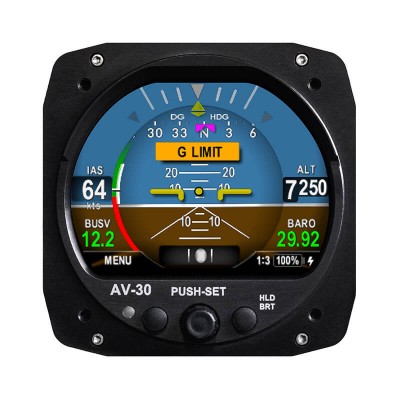
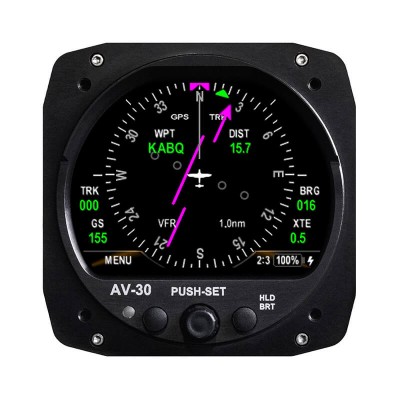
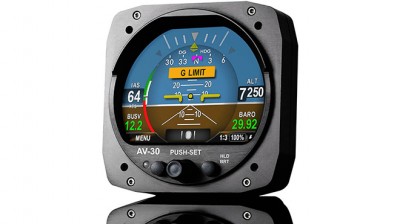
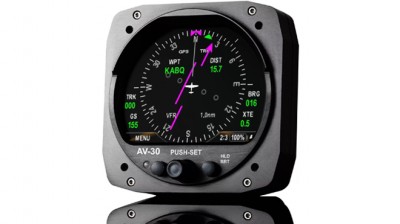
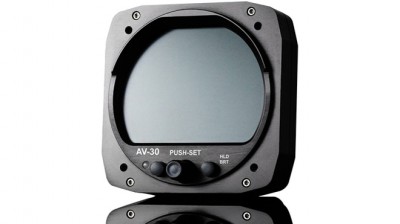
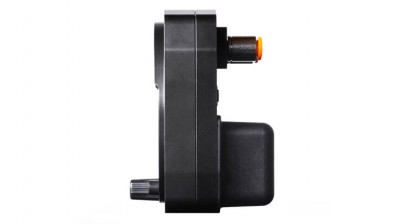
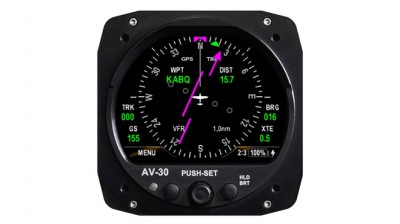
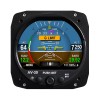
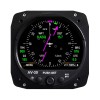










.jpg)
